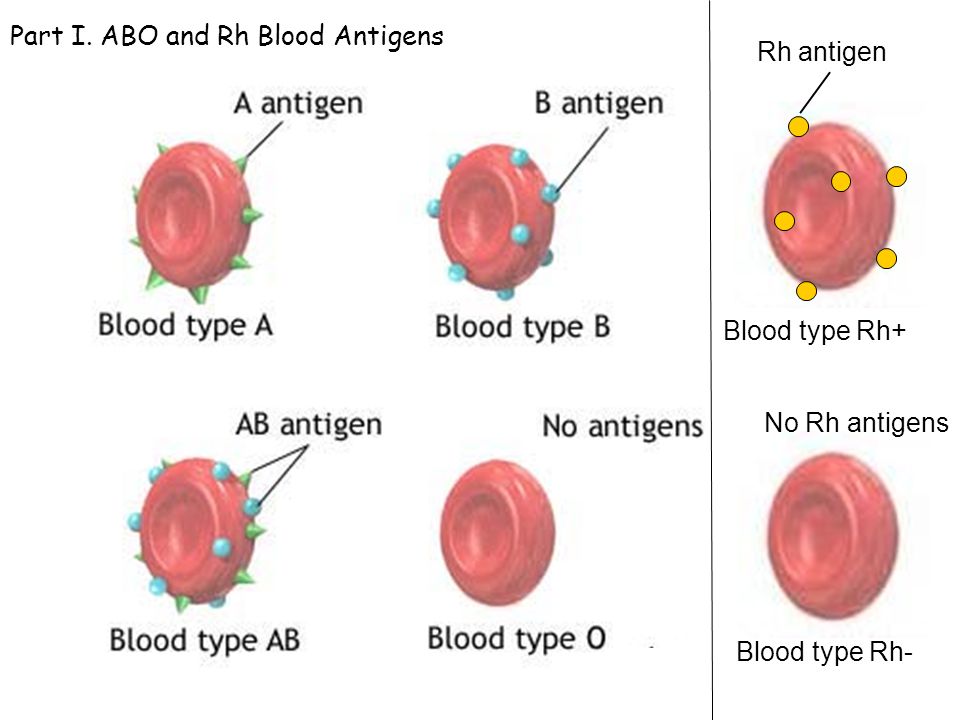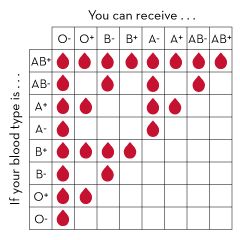What are blood types? Why do you have to donate blood to someone with the same blood type?
1 Answer
Blood types are determined by antigens and antibodies present on a person's blood cells, and donating blood to a person that contains a foreign antigen may cause the recipient's body to reject the blood donation.
Explanation:
Blood cells have antigens on their surface that serve as markers or flags, and plasma contains antibodies that detect and reject blood cells with foreign antigens.
Antigens (A, B, and Rh)
There are several antigens present on the surface of blood cells that serve as "markers" or "flags." These include A, B and Rh antigens. For instance, if a person has A and B antigens present in their blood, their blood type is deemed "type AB," while blood with only A antigens will be deemed "type A." If a person's blood contains certain Rh factors, they are deemed "Rh positive" or just "positive." Therefore, a person with type "AB-positive blood" has the A, B, and Rh antigens. If person's blood contains neither A nor B antigens, they are deemed "type O," so a person with "O positive" blood has neither A nor B antigens, but would still have Rh antigens.

Antibodies
For every antigen in a person's blood, they lack the antibody for that specific antigen. For instance, a person who is "A-positive" will have B antibodies, but neither A nor Rh antibodies. Similarly, a person with blood type "AB-negative" will have neither A nor B antibodies, but will still have Rh antibodies.
Why do you have to donate blood to someone with the same blood type?
You don't have to donate blood to someone with the same blood type. All that is necessary for a donor to be a "match" is that their blood must not trigger any of the antibodies in the recipient's blood. For instance, a person with blood type AB-negative cannot donate to a person with blood type B-negative, because the recipient's blood will have A antibodies present, and will reject the blood since it contains A antigens. Here's a table describing who can receive blood whom:

Since someone who is "AB-positive" will lack all blood-type related antibodies in their blood, they can recieve blood from anyone. For this reason, people with blood type "AB-positive" are deemed "universal recipients." In stark contrast, since someone who is "O-negative" will have no antigens in their blood, they can donate to anyone. For this reason, people with blood type "O-negative" are called "universal donors."

